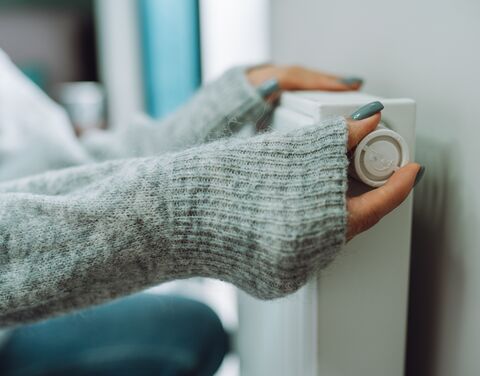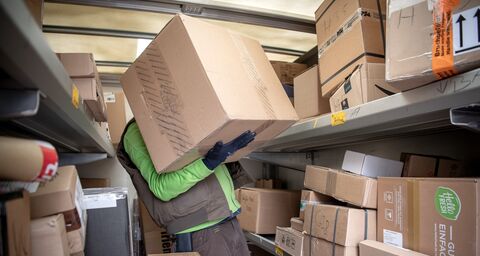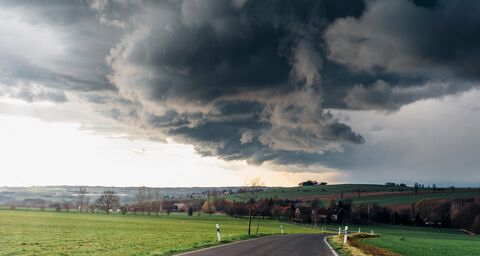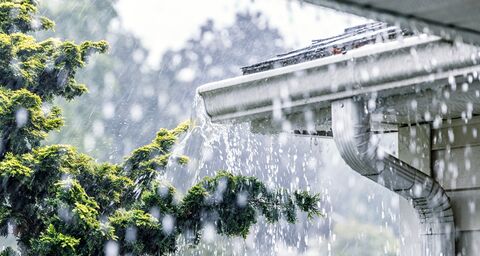
Saving electricity at home: 7 tips
With 3.9 million households, Switzerland uses quite a bit of energy. But even making little changes can have a big impact. Protect the environment and save money too! These 7 simple tips show you how to effectively cut your energy usage.
Save electricity? Sounds bothersome and troublesome. Who wants to sit in the cold and dark? But there are ways you can save energy without even really trying. You just need to tweak your habits a bit. It’s worth the effort! And establishing good habits is also very satisfying. If you want to save even more electricity, all you need is a couple of carefully considered investments. For example, replace old devices that use an excessive amount of energy sooner rather than later. This will pay off quicker than you think. An energy-optimized house will not only leave you with more money to spend on things you want, it will also make you feel good that you are doing your bit for the environment. Here are our best tips:
Tip 1: Heat and air out your rooms properly in the winter
Did you know? Lowering the temperature by just one degree can save you up to 10 percent in electricity. Heating properly means the room temperature in your house should never be over 20 degrees Celsius. And your bedroom only needs to be 18 C. If your home has radiators, make sure they are not obstructed. Do not place curtains and furniture in front of radiators, or objects on top of them. Doing any of these things prevents the warm air from circulating around the room. Fresh air is important in winter as well. You should air out rooms in one quick blast or by creating a cross breeze several times a day. And this saves a lot of energy compared to keeping the windows cracked open.
Tip 2: Use your refrigerator and freezer efficiently
Your fridge alone uses up to one quarter of the total electricity for your house. This is why energy efficient appliances are worth it if you want to save energy. If a layer of ice builds up in either your refrigerator or freezer, you should defrost it. A layer of ice that is just two millimeters thick in the freezer can increase your electricity usage by 15 percent.
You can also save energy by not leaving the fridge door open for longer than necessary and by not putting warm food in it. Let food cool down first. The ideal temperature in the middle of the fridge is about 7 C.
Tip 3: Save energy when cooking
You can save a lot of energy in the kitchen. Put lids on pots to reduce energy consumption or heat the water in an electric kettle. Preheating the oven is often unnecessary. The microwave and the stove are much better for reheating food than the oven because ovens use up to seven times more energy.
Tip 4: Turn devices completely off
Even when they’re in standby mode, TVs, laptops, robot vacuum cleaners, coffee machines, etc. use unnecessary energy. This is why you should always turn devices completely off and unplug them as soon as the batteries are charged. Recycle devices that are too old and consult the energy efficiency ratings when buying new devices. Tip: Power strips that have a button so you can turn them off are particularly useful for saving electricity. If you always turn them off when you’re not using them, not only will you save electricity, but you also reduce the risk of a short.
Tip 5: Invest in LED bulbs
You don’t need to sit in the dark. All you need is LED lights. They use up to 80 percent less electricity than regular bulbs and halogen lights. If you turn off the lights when you leave the room, even if you’ll only be gone for a short time, you’ll save even more electricity.
Tip 6: Saving water and electricity in the bathroom
By using warm water sparingly and taking a short shower instead of a bath, you can save a significant amount of energy. And turning the water off when you are lathering up and brushing your teeth saves even more. Low-flow shower heads and faucets use up to 50 percent less water. And thanks to the latest technology, you don’t have to worry about wimpy water pressure.
Tip 7: Washing your clothes and dishes the right way
Dishwashers and washing machines make housework a whole lot easier. To get the most energy efficiency from these appliances, only run them when you have a full load and use the energy saver mode. You don’t need to prewash your dishes either. Just wiping off the larger bits of food is enough. The newer washing machines no longer need to prewash clothes and they get them clean at just 30 degrees Celsius. This saves a lot of energy. And by choosing a higher spin cycle, the clothes will take less time to dry. If you skip the dryer altogether, you’ll also save energy.
If the lights suddenly go out
Switzerland has not had to worry about its supply of electricity for decades now. We are used to always having electricity – 24 hours a day and in seemingly unlimited quantities. But we can’t take electricity for granted. The electricity may go off at any time due to a storm, an accident, a disruption or a power shortage. So let’s talk about what to do during a power outage.
How do you prepare for a power outage?
The key is to prepare mentally. Think about every part of your day and how electricity is involved. What light sources will you have without electricity? How will you keep warm? What will you eat and how will you cook it? How will you get water if the pumps go out? How will you get information if the cell phone network and Internet go down? Do you have an emergency supply of drinking water, food, medicine and a little cash stored in your house? And in an emergency how long would these supplies last?
Checklist of useful things
- Candles with matches / lighters, camping lanterns with gas cartridges, flashlights with batteries, cordless lamps with charged batteries, charged powerbanks
- Car radio or battery operated radio
- Several buckets or other containers to collect drinking water or water for household usage
- Camping stoves with gas cartridges, fondue pots with gel fuel, outdoor grill with gas or charcoal
- Emergency supplies
What do I do when the electricity goes out?
- Turn off and unplug your electronic devices and appliances. When power is restored, a power surge could damage your electronic devices and appliances. Open fridge and freezer doors as little as possible.
- Try to learn more about the power outage if you can still use your smartphone or a battery operated radio or car radio.
- Check whether anyone in your building is in trouble due to the outage, i.e. people stuck in the elevator.
What should you do if the power outage lasts for a long time?
- If the water is still on, fill a few larger containers such as buckets, cans or pots or even the bathtub with drinking water.
- Check on the elderly or any people who live alone in your neighborhood and help them out if needed. Keep yourself informed and pass on useful information.
- Think about how you can potentially prevent any damage from happening. During hard freezes, empty the water out of pipes to prevent them from bursting.






